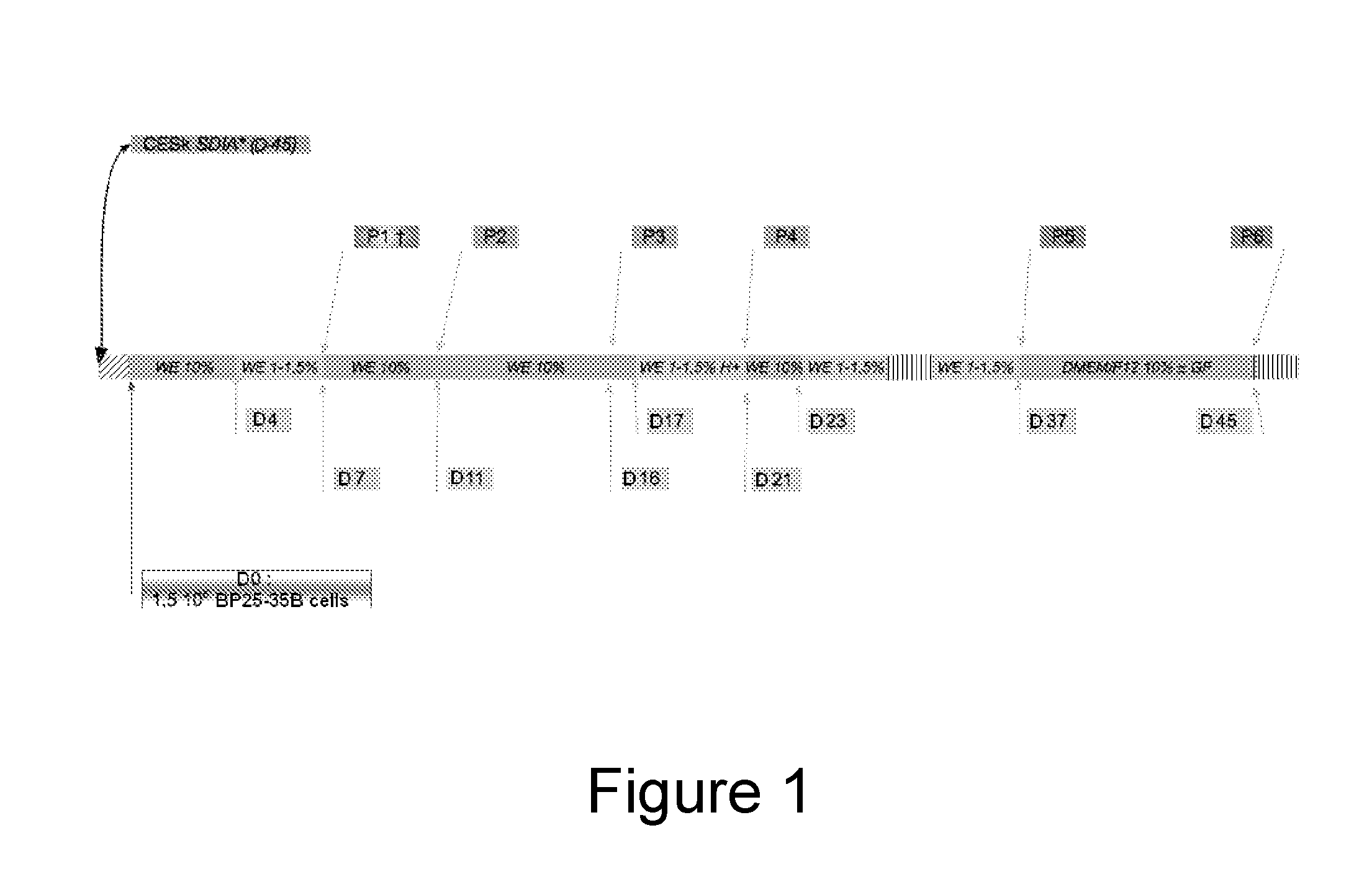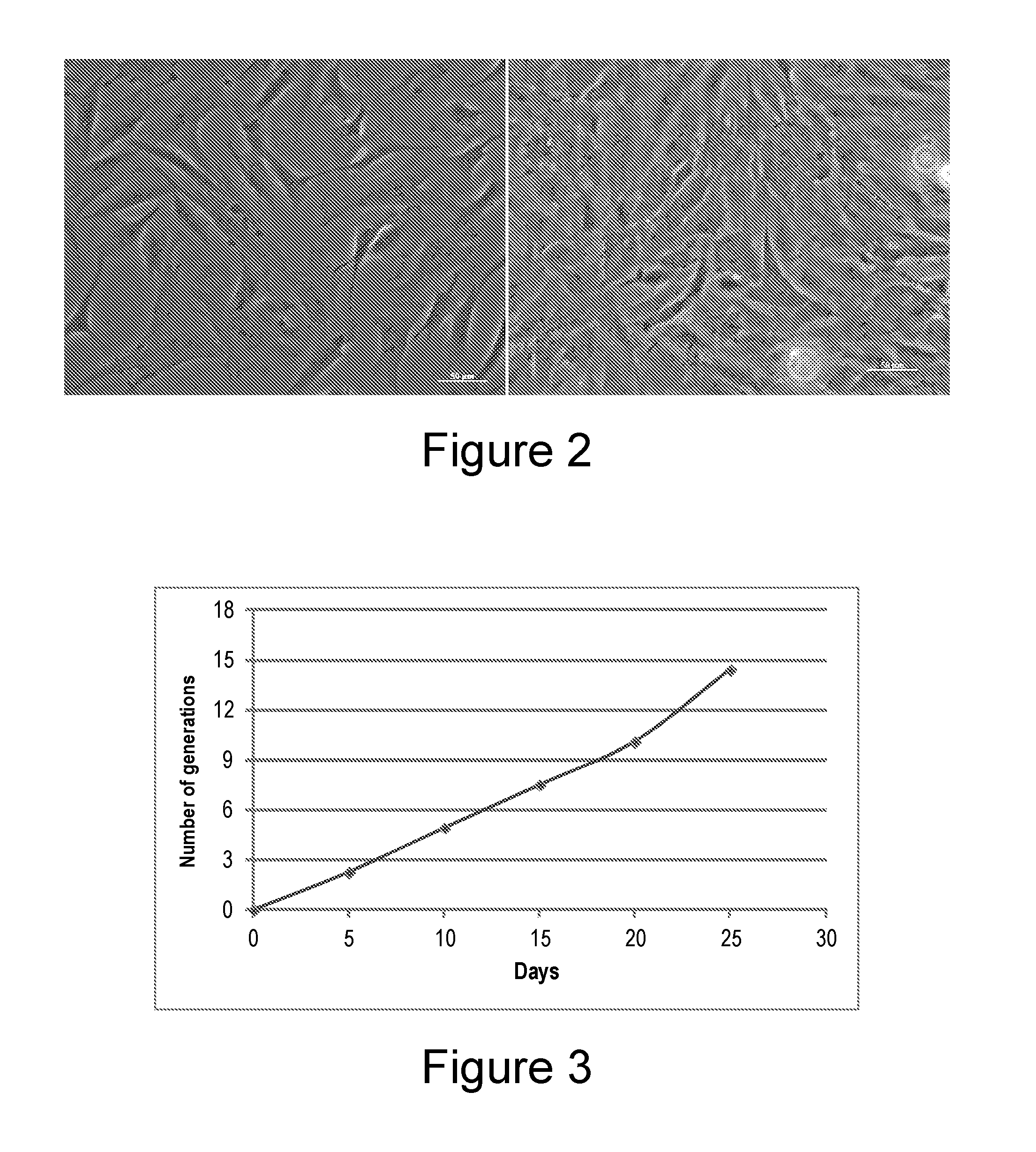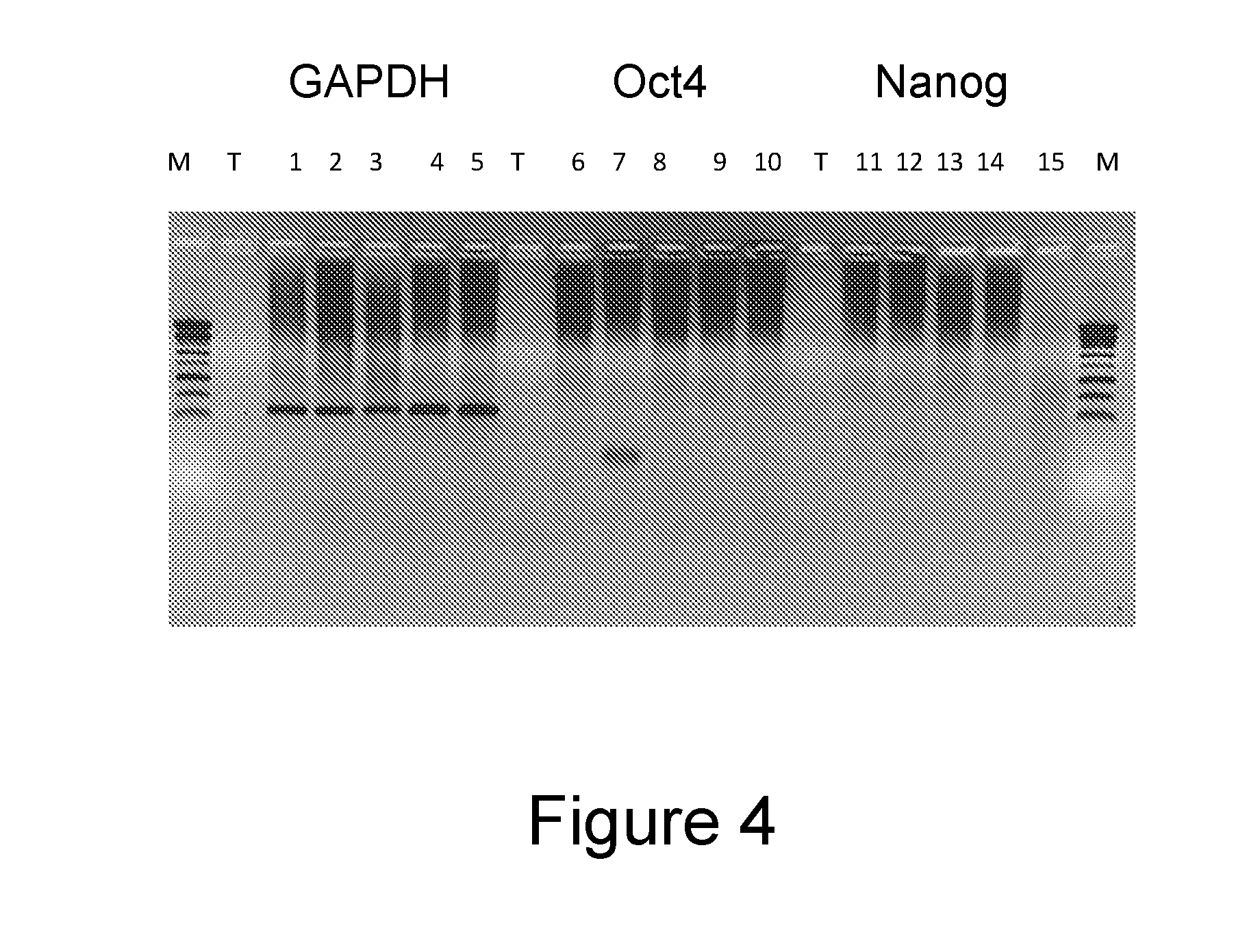Method for selecting a permissive cell line for replicating avian viruses
a cell line and virus technology, applied in the field of selecting a permissive cell line for replicating avian viruses, can solve the problems of low profit margin for farmers, vaccines cannot be marketed at prices exceeding a few euro cents, and vaccine production costs of vaccines
- Summary
- Abstract
- Description
- Claims
- Application Information
AI Technical Summary
Benefits of technology
Problems solved by technology
Method used
Image
Examples
example 1
Isolation of the ESCDL-1 Line
[0146]The establishment of a permissive line from BP25 cells was conducted according to an induction logic based on successive exposure to complex extracellular matrices derived from permissive cells (Stromal cell-derived inducing activity—SDIA—(Kawasaki et al., 2000)) and to the cytodifferentiating action of HMBA. The preparation of the extracellular matrices from chicken skin primary cells was carried out according to the procedure described by Coraux (Coraux et al., 2003). The culture supports obtained were stored for 45 days at 4° C. and absence of cell growth was checked at the end of the storage. On day 0 of the induction, the stem cells were sown on a Petri dish containing the extracellular matrix, in an amount of 26,500 cells / cm2, in a WE medium containing 10% of FCS (FIG. 1). After a cycle of exposure to reduced serum concentrations and 2 trypsinations, the cells at the passage 3 were exposed for 3 days to the action of HMBA (5 mM), in a WE medi...
example 2
Characterization of the ESCDL-1 Line
[0147]The ESCDL-1 cells have a rather fibroblast morphology (FIG. 2), their doubling period is of about 40 hours and they seem to show gradual loss of their proliferation potential from the 100th passage. Their growth curve is shown in FIG. 3.
[0148]The lineage between BP25-36b and ESCDL-1 was checked so as to establish that the cells did not derive from the persistence of living cells from among the cells having been used for establishing the extracellular matrix. As the BP25 cells were obtained from naked neck chicken embryos (Pain et al., 1996), we used a PCR differentiating LD1 animals from naked-neck animals (Mou et al., 2011) on genomic DNAs extracted from stem cells (BP25), from ESCDL-1 (P38) cells and from skin embryo primary cells (LD1 hens). The analysis of the fragments obtained showed that the BP25 like the ESCDL-1 derive from an embryo of the naked-neck genotype (heterozygote—Na / na) while the primary cells stemmed from a “wt” genotype ...
example 3
Permissivity of ESCDL-1 Cells for Replication of Avian Viruses
The Studied Viruses are the Following:
[0152]1. Attenuated viruses adapted to cell culture:[0153]The Bac20 virus and derivatives: the virus Bac20 UL17mRFP (Chbab et al., 2009) was used as a main tool for studying permissivity, because of the facility of its handling (red fluorescent protein fused to the protein UL17) and of the preservation of its multiplication characteristics relatively to the parent virus (non-labeled Bac20). Bacmids coding for the Bac20 and Bac20EGFPUL49 viruses (Blondeau et al., 2008) were also transfected in ESCDL-1 cells. The infection with the infected cells (chicken skin primary cells) with the virus Bac20-eGFPUL49 was also used (Denesvre et al., 2007)[0154]The virus MeHV-1: The MeHV-1 virus strain FC126 was inoculated on ESCDL-1 cells from a freeze-dried vaccinal preparation (no primary cells).
[0155]2. Pathogenic viruses: viruses derived from Bacmids RB-1 B.[0156]Virus RB-1B and RB-1BUL17mRFP: tr...
PUM
| Property | Measurement | Unit |
|---|---|---|
| Time | aaaaa | aaaaa |
| Time | aaaaa | aaaaa |
| Time | aaaaa | aaaaa |
Abstract
Description
Claims
Application Information
 Login to View More
Login to View More - R&D
- Intellectual Property
- Life Sciences
- Materials
- Tech Scout
- Unparalleled Data Quality
- Higher Quality Content
- 60% Fewer Hallucinations
Browse by: Latest US Patents, China's latest patents, Technical Efficacy Thesaurus, Application Domain, Technology Topic, Popular Technical Reports.
© 2025 PatSnap. All rights reserved.Legal|Privacy policy|Modern Slavery Act Transparency Statement|Sitemap|About US| Contact US: help@patsnap.com



